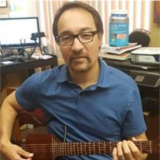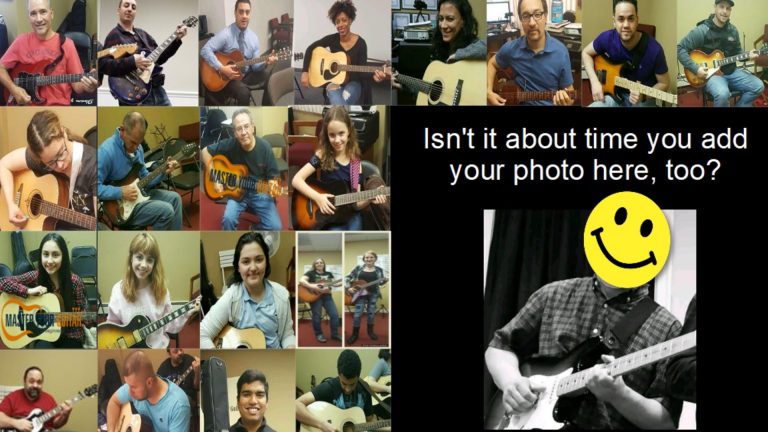Free Resources Designed To Help You Grow As A Musician
Are singing scales overrated? By Chris Glyde

Are singing scales overrated? By Chris Glyde
Over the last 10-15 years there has arisen this wave of vocal coaches that walk around telling others that singing scales isn’t important. Personally, I would disagree with this, but I want to consider all the sides, discuss the issues thoroughly, and let you come up with your own opinion.
Argument 1: Scales aren’t important
The portion of vocal coaches that believe singing scales isn’t important tend to come from the speech-level side of voice. For those who are unfamiliar: in a nut shell, speech-level singers try to avoid all tension within the voice, rather than manage the tension in their voice.
Now most of these coaches will give out odd exercises that help you relieve tension. These exercises will help with that specific task. I actually think this is a great strength of speech level singing and very valuable. These coaches would sooner recommend you sing the songs you enjoy applying these techniques to the melody lines, saying that you’ll be able to sing the songs you want.
Within this context, I think they’re absolutely correct.
Argument 2: Scales are important:
Vocal instructors who believe singing scales are important tend to learn more from the classical side of vocal training. They’re all taught techniques such as diaphragmatic breathing, vowel modifications etc. These are very formal techniques. Please don’t excuse formal for “only used in opera”. Nothing is further from the truth.
All these techniques can be used expertly in a modern context. That said, when talking about this side of the argument, you must consider that most singers are training to embed these techniques. In order to do so it’s important to practice on every note and train the notes up.
If you avoid this step you’ll never properly develop the skills or techniques you’re looking to develop.
So in this case, the classical vocalists are correct.
So then who is actually right?
That would depend on what you want to achieve with your voice. There are some people who are mere hobbyists and I think speech level works very well for them. For those looking to develop serious voices, I would personally say you need to and must go the classical route (although find a teacher who can apply it to a modern context).
For those of you who hear the word scale and all of a sudden become petrified of the thought of having to sing, or you feel like you’re doomed to a life of boredom, you simply need to mix up what you’re doing and make it fun. Yes, scales can be fun! I like to mix both the speech level and classical approach to singing and make things far more interesting. How? Like this:
Practicing scales is like going to the gym and doing different exercises. During these exercises you’re targeting different muscle groups. Voice works the same way. There’s no getting around doing your warm up scales. You must do these. Basic major scales going up and down for 10 minutes.
Once you’re finished with that approach however, you can take a melody from your favorite song. Find the notes on a piano, guitar, etc. and then move the melody up one half step each time you sing through it.
So what you’re doing is taking a melody and making a scale workout with it. The difference is that this is a melody you know. You can also practice application by adding the words to the scale run. Or, if you’re still warming up then just keep it simple and just work on vowels. The idea is you take the sound you love, turn it into a scale and, all of a sudden, you get the best of both worlds. An awesome time singing a melody you love and the benefits of developing the technique you need to be a really great singer.
In the end, maybe this article should have started off challenging the premise that scales have to be boring and no one likes them.
About the author:
Chris Glyde is a vocal Coach, Guitar teacher and songwriter based in Rochester, New York. If you’re looking for help improving your voice visit Rochester Voice Lessons.
Let me know how these tips work out for you and watch for the next installment!
Article written by: Chris Glyde
Article published by: Marcus L. Diaz
Owner, Mentor, Trainer, Coach
Master Your Guitar Music Academy
marcus@masteryourguitar.net
Here’s an extra tip:
The typical, average, logical approach to learning guitar that most instructors follow is NOT the best way to learn to play guitar. This is why I ONLY allow TRUSTED sources to write articles here. My students come to me week after week because they learn faster here than with any of their previous instructors! Why? Because there is madness in my method and a method to my madness! Learn how to prevent YEARS of frustration when you...
Get To Know All Of These Concepts Even Better With A FREE Personalized Lesson
"Our guiding principle in teaching is to help EVERY student fall in love with their instrument – We pride ourselves on making EVERY new player good and EVERY good player great as fast as humanly possible – And seeing that happen during each and every lesson puts a huge smile on my face!" - Marcus Diaz
 Ben F
Ben F
 Pete V
Pete V
 John A
John A
 Mike A
Mike A
